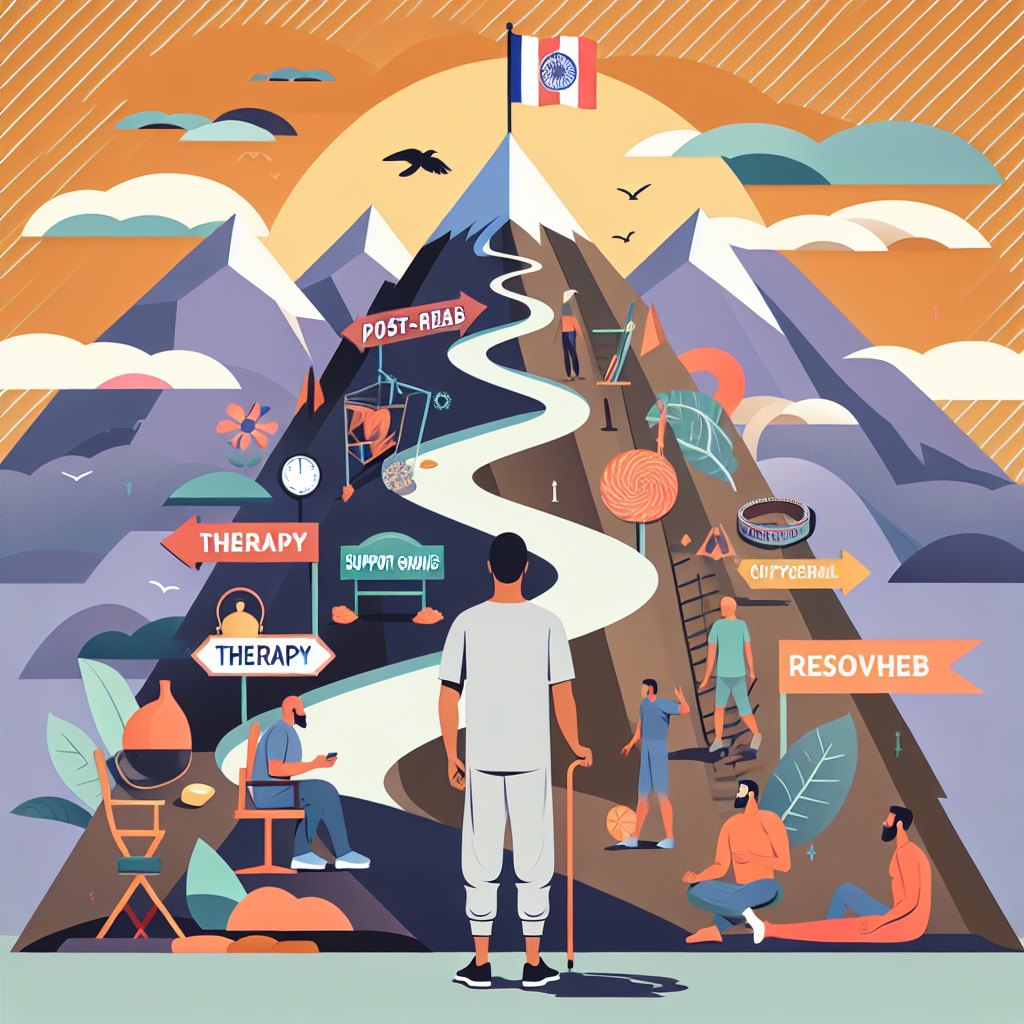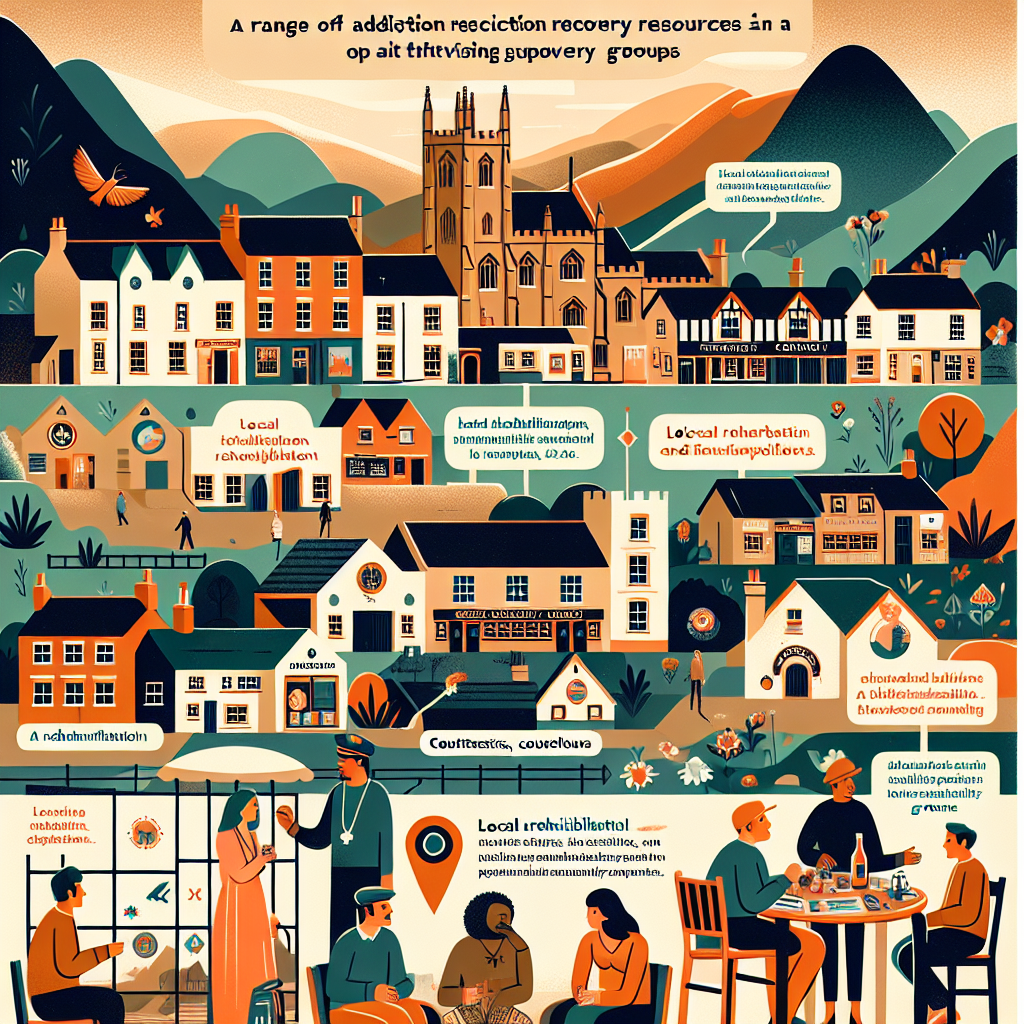-
Table of Contents

“Empowering Your Journey: Sustaining Sobriety and Building a Brighter Future Beyond Rehab.”
Introduction
Addiction recovery services play a crucial role in supporting individuals as they transition from rehabilitation programs back into everyday life. These services provide a structured and supportive environment that helps individuals maintain sobriety, develop coping strategies, and rebuild their lives. Through a combination of counseling, support groups, and life skills training, addiction recovery services address the psychological, social, and practical challenges that can arise after rehab. They offer ongoing support to prevent relapse, foster a sense of community, and promote long-term recovery, ultimately helping individuals achieve a healthier, more stable, and fulfilling life.
Building a Support Network: The Role of Addiction Recovery Services in Post-Rehab Life
Addiction recovery services play a crucial role in helping individuals navigate the often challenging transition from rehab to everyday life. After completing a rehabilitation program, many people find themselves at a crossroads, where the structured environment of rehab gives way to the complexities and temptations of the outside world. This is where addiction recovery services step in, providing the necessary support and resources to build a robust support network that can make all the difference in maintaining long-term sobriety.
One of the primary ways addiction recovery services assist individuals post-rehab is by offering continued counseling and therapy. These services ensure that individuals do not feel abandoned once they leave the rehab facility. Regular counseling sessions provide a safe space for individuals to discuss their struggles, celebrate their victories, and receive professional guidance on coping strategies. This ongoing support is vital in helping individuals understand and manage the triggers that could lead to relapse.
In addition to counseling, addiction recovery services often facilitate support groups. These groups bring together individuals who are going through similar experiences, fostering a sense of community and shared understanding. The power of peer support cannot be underestimated; knowing that others have faced and overcome similar challenges can be incredibly motivating. Support groups also provide a platform for individuals to share their stories, offer advice, and hold each other accountable, creating a network of mutual support that extends beyond the walls of the rehab center.
Moreover, addiction recovery services frequently offer educational workshops and resources that equip individuals with the knowledge and skills needed to thrive in their post-rehab life. These workshops might cover topics such as stress management, healthy relationships, and financial planning, all of which are essential for building a stable and fulfilling life in recovery. By addressing these practical aspects, recovery services help individuals develop a well-rounded approach to their new, sober lifestyle.
Another critical component of addiction recovery services is the focus on holistic well-being. Many programs incorporate activities such as yoga, meditation, and exercise, which promote physical health and mental clarity. These activities not only help individuals manage stress and anxiety but also encourage the development of healthy habits that can replace the destructive behaviors associated with addiction. By fostering a balanced lifestyle, recovery services help individuals build a strong foundation for long-term sobriety.
Furthermore, addiction recovery services often provide assistance with employment and housing, recognizing that stability in these areas is crucial for successful recovery. Job placement programs, resume-building workshops, and connections to sober living facilities are just a few examples of how these services support individuals in creating a stable and secure environment. Having a steady job and a safe place to live can significantly reduce the stress and uncertainty that might otherwise lead to relapse.
In conclusion, addiction recovery services are indispensable in helping individuals build a support network that can sustain them through the ups and downs of post-rehab life. By offering continued counseling, facilitating support groups, providing educational resources, promoting holistic well-being, and assisting with employment and housing, these services create a comprehensive support system that empowers individuals to maintain their sobriety and build a fulfilling life. The journey of recovery is ongoing, but with the right support network, it is a journey filled with hope, resilience, and the promise of a brighter future.
Long-Term Strategies: How Addiction Recovery Services Aid in Sustaining Sobriety After Rehab
Addiction recovery services play a crucial role in helping individuals sustain sobriety after completing a rehabilitation program. While rehab provides the initial foundation for recovery, the journey to long-term sobriety is often fraught with challenges that require ongoing support and strategies. These services offer a lifeline, guiding individuals through the complexities of post-rehab life and helping them build a stable, fulfilling future.
One of the primary ways addiction recovery services aid in sustaining sobriety is through continuous emotional and psychological support. After leaving the structured environment of rehab, individuals often face triggers and stressors that can lead to relapse. Recovery services provide access to counselors and support groups, where individuals can share their experiences and receive guidance. This ongoing support helps them develop coping mechanisms and resilience, making it easier to navigate the ups and downs of everyday life without resorting to substance use.
Moreover, addiction recovery services often include life skills training, which is essential for long-term sobriety. Many individuals struggling with addiction may have neglected important aspects of their lives, such as financial management, employment, and personal relationships. Recovery programs offer workshops and one-on-one coaching to help individuals rebuild these areas. By equipping them with practical skills, these services empower individuals to create a balanced and productive life, reducing the likelihood of relapse.
In addition to emotional support and life skills training, addiction recovery services emphasize the importance of building a strong support network. Isolation can be a significant risk factor for relapse, so fostering connections with others who understand the challenges of recovery is vital. Many recovery programs facilitate peer support groups, where individuals can form meaningful relationships and hold each other accountable. These connections provide a sense of community and belonging, which can be incredibly motivating and reassuring during difficult times.
Furthermore, addiction recovery services often incorporate holistic approaches to well-being, recognizing that sobriety is not just about abstaining from substances but also about achieving overall health. Programs may include activities such as yoga, meditation, and exercise, which promote physical and mental wellness. By encouraging individuals to adopt healthy habits, these services help them build a lifestyle that supports their recovery journey.
Another critical aspect of sustaining sobriety is addressing any co-occurring mental health issues. Many individuals with addiction also struggle with conditions such as depression, anxiety, or PTSD. Recovery services often provide integrated treatment plans that address both addiction and mental health, ensuring that individuals receive comprehensive care. By treating the underlying issues that may contribute to substance use, these services help individuals achieve lasting recovery.
Lastly, addiction recovery services offer relapse prevention strategies, which are essential for maintaining sobriety. These strategies include identifying triggers, developing a relapse prevention plan, and learning how to manage cravings. Recovery programs often provide education on these topics, helping individuals understand the warning signs of relapse and how to respond effectively. By being proactive and prepared, individuals can navigate potential pitfalls and stay on the path to recovery.
In conclusion, addiction recovery services are indispensable in helping individuals sustain sobriety after rehab. Through continuous support, life skills training, community building, holistic approaches, integrated mental health care, and relapse prevention strategies, these services provide the tools and resources needed for long-term success. By embracing these supports, individuals can build a stable, fulfilling life free from the grip of addiction, inspiring hope and resilience for the future.
Q&A
1. Addiction recovery services provide ongoing support and counseling to help individuals maintain sobriety and cope with triggers and stressors in post-rehab life.
2. These services often include access to support groups, such as Alcoholics Anonymous or Narcotics Anonymous, which offer a community of peers who share similar experiences and can provide encouragement and accountability.
Conclusion
Addiction recovery services play a crucial role in post-rehab life by providing ongoing support, resources, and structure to help individuals maintain sobriety and prevent relapse. These services often include counseling, support groups, and educational programs that address the psychological, social, and behavioral aspects of addiction. By offering a continuum of care, they help individuals build coping skills, develop healthy routines, and establish a supportive network, all of which are essential for long-term recovery and reintegration into daily life.



